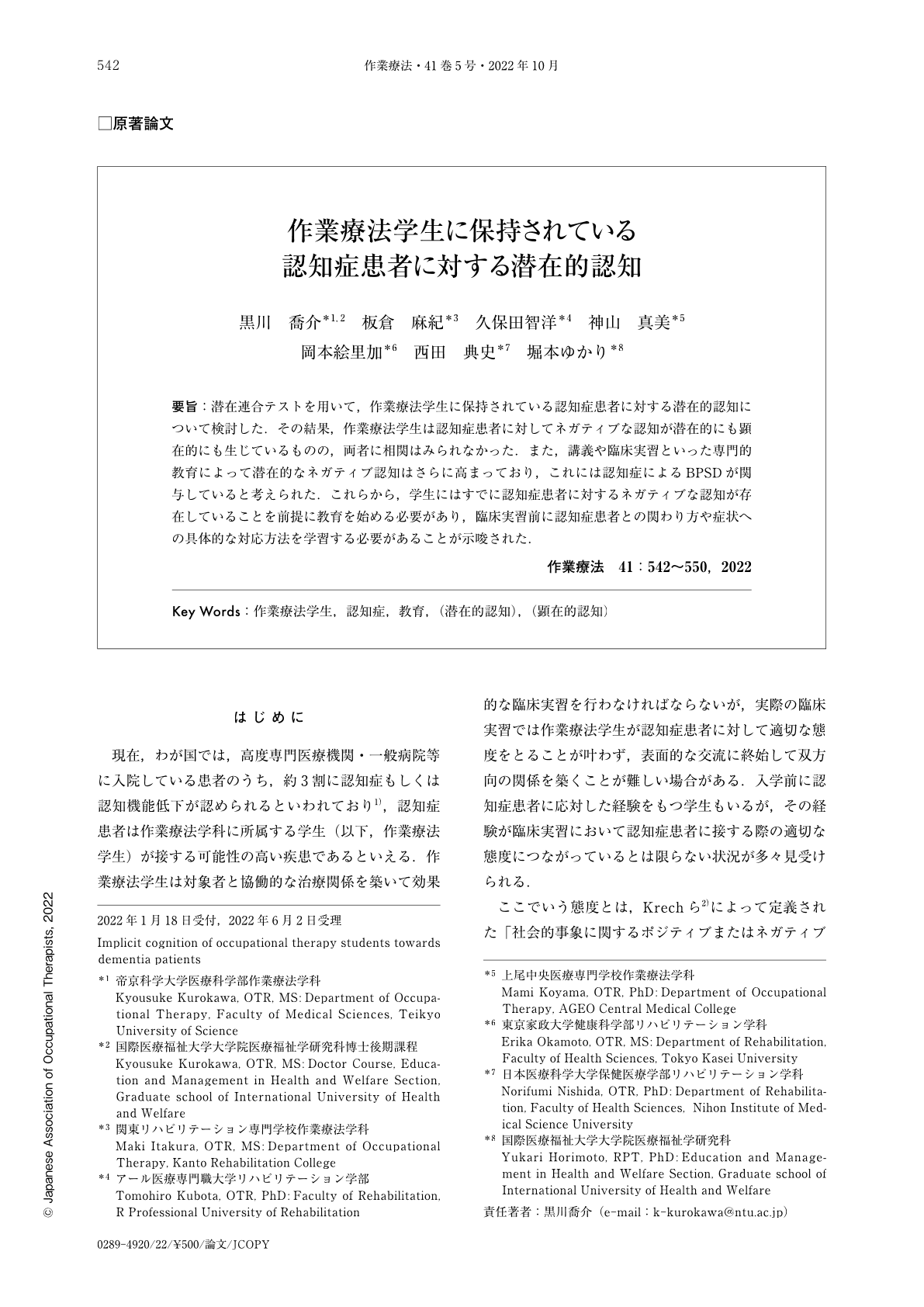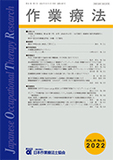Japanese
English
- 販売していません
- Abstract 文献概要
- 1ページ目 Look Inside
- 参考文献 Reference
要旨:潜在連合テストを用いて,作業療法学生に保持されている認知症患者に対する潜在的認知について検討した.その結果,作業療法学生は認知症患者に対してネガティブな認知が潜在的にも顕在的にも生じているものの,両者に相関はみられなかった.また,講義や臨床実習といった専門的教育によって潜在的なネガティブ認知はさらに高まっており,これには認知症によるBPSDが関与していると考えられた.これらから,学生にはすでに認知症患者に対するネガティブな認知が存在していることを前提に教育を始める必要があり,臨床実習前に認知症患者との関わり方や症状への具体的な対応方法を学習する必要があることが示唆された.
The latent association test was used to examine the implicit cognition of occupational therapy students for patients with dementia. The results indicate that although occupational therapy students had both implicit and explicit negative cognition for dementia patients, there was no correlation between the two. In addition, specialized education such as lectures and clinical education further enhances students' implicit negative perceptions, suggesting that BPSD due to dementia is the cause. Therefore, it is necessary to begin education on the premise that students already have negative cognition for dementia patients, and it is necessary for them to learn how to interact with people with dementia and how to deal with their symptoms before clinical education.

Copyright © 2022, Japanese Association of Occupational Therapists. All rights reserved.


